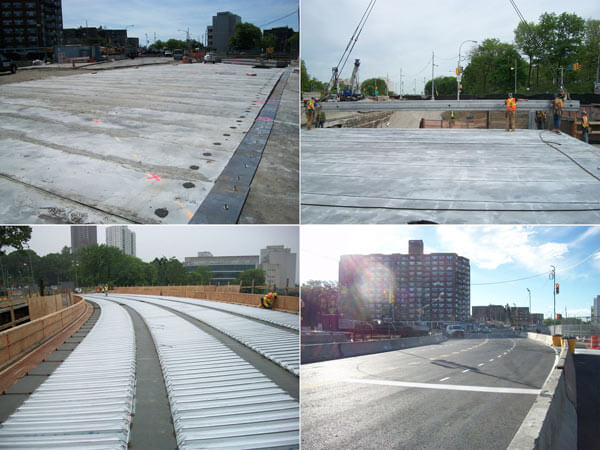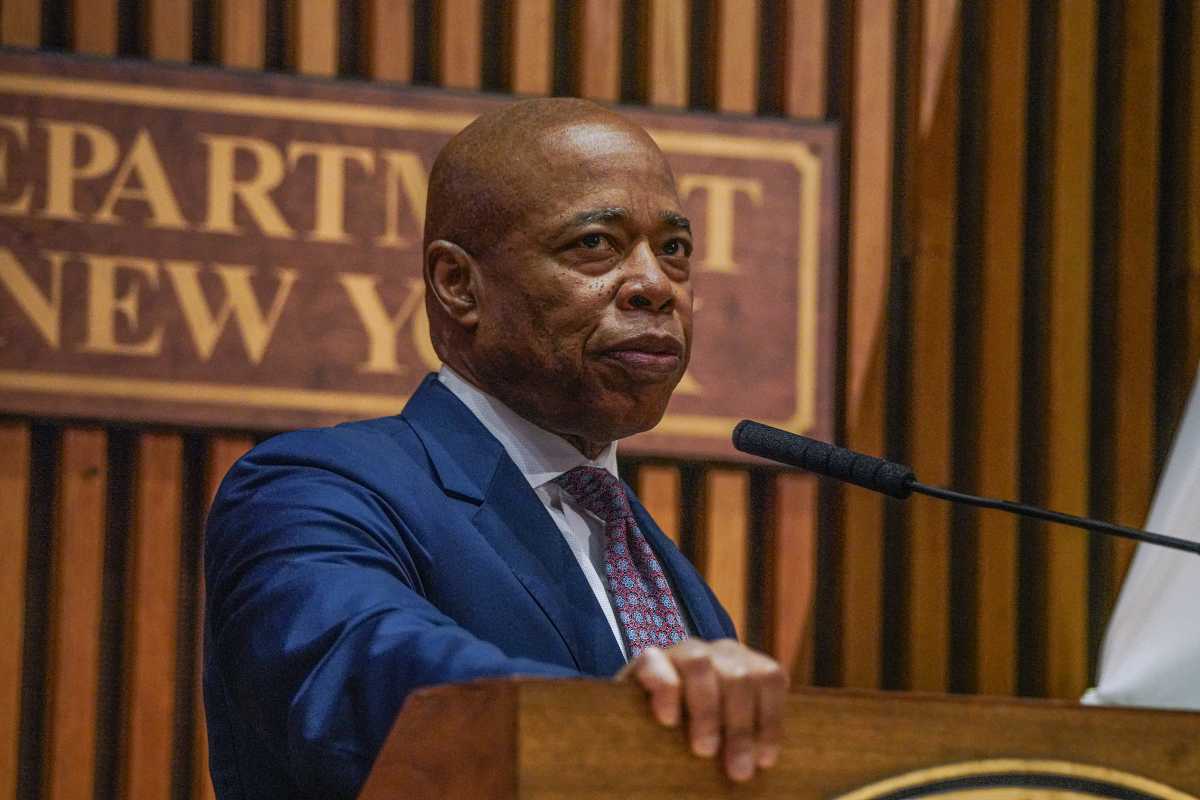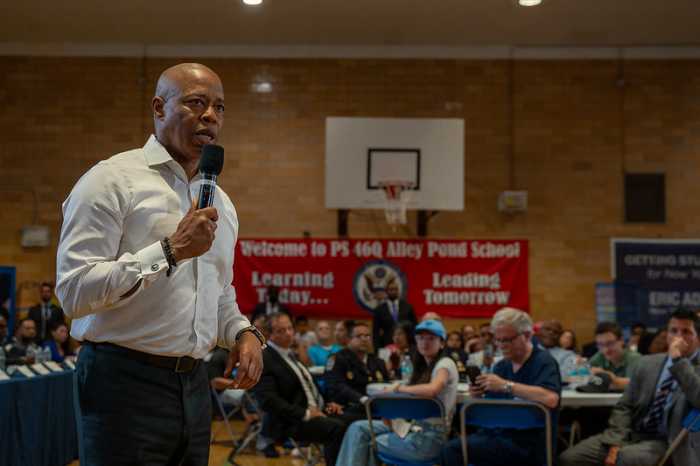By Bianca Fortis
Both parts of the Kew Gardens interchange construction project are almost halfway done, according to officials from the state Department of Transportation.
The project is designed to mitigate traffic and improve safety on the interchange, where the Van Wyck Expressway, Grand Central Parkway, Jackie Robinson Expressway and Union Turnpike meet. An estimated 500,000 motorists travel through the interchange daily.
The first portion, which encompasses the Van Wyck Expressway between 82nd Avenue and Grand Central Parkway and Queens Boulevard, is about 46 percent complete, Craig Ruyle, a construction supervisor at the DOT, said Tuesday at the monthly Queens Borough Board meeting.
The project, estimated to cost $146 million, involves the complete reconstruction of six bridges and the widening of the Van Wyck Expressway.
The widening “will hopefully eliminate a lot of the weaving that goes on between the different ramps,” Ruyle said.
The project also involves the construction of three pedestrian plazas on Queens Boulevard, which will have plantings and benches. Landscaping, including the planting of trees, will be done along the Van Wyck Expressway and Queens Boulevard.
It also includes the reconstruction of subway entrances at Briarwood-Van Wyck Boulevard, which serves the E and F trains.
Ruyle said one entrance was opened last year. Tiling and electrical work are being completed on the second entrance.
Construction on the first part of the project had been temporarily halted in 2010 when the state Legislature failed to approve a budget on time, but later started again in July of that year. It is expected to be completed by January 2016, according to the DOT.
The second part of the Kew Gardens interchange is construction on the northbound Van Wyck Expressway between the Jackie Robinson Parkway and 72nd Avenue.
The planned completion date for that project, which began in April 2012, is February 2017, although Ruyle said the DOT anticipates it will be finished much sooner. This portion is expected to cost $112 million, according to Ruyle.
Plans for the project were first unveiled in 2003.
According to the DOT, $72 million of the funding for the project came from the New York State Bond Act, and the rest comes from the state and federal government.
Reach reporter Bianca Fortis by email at bfortis@cnglocal.com or by phone at 718-260-4546.




































